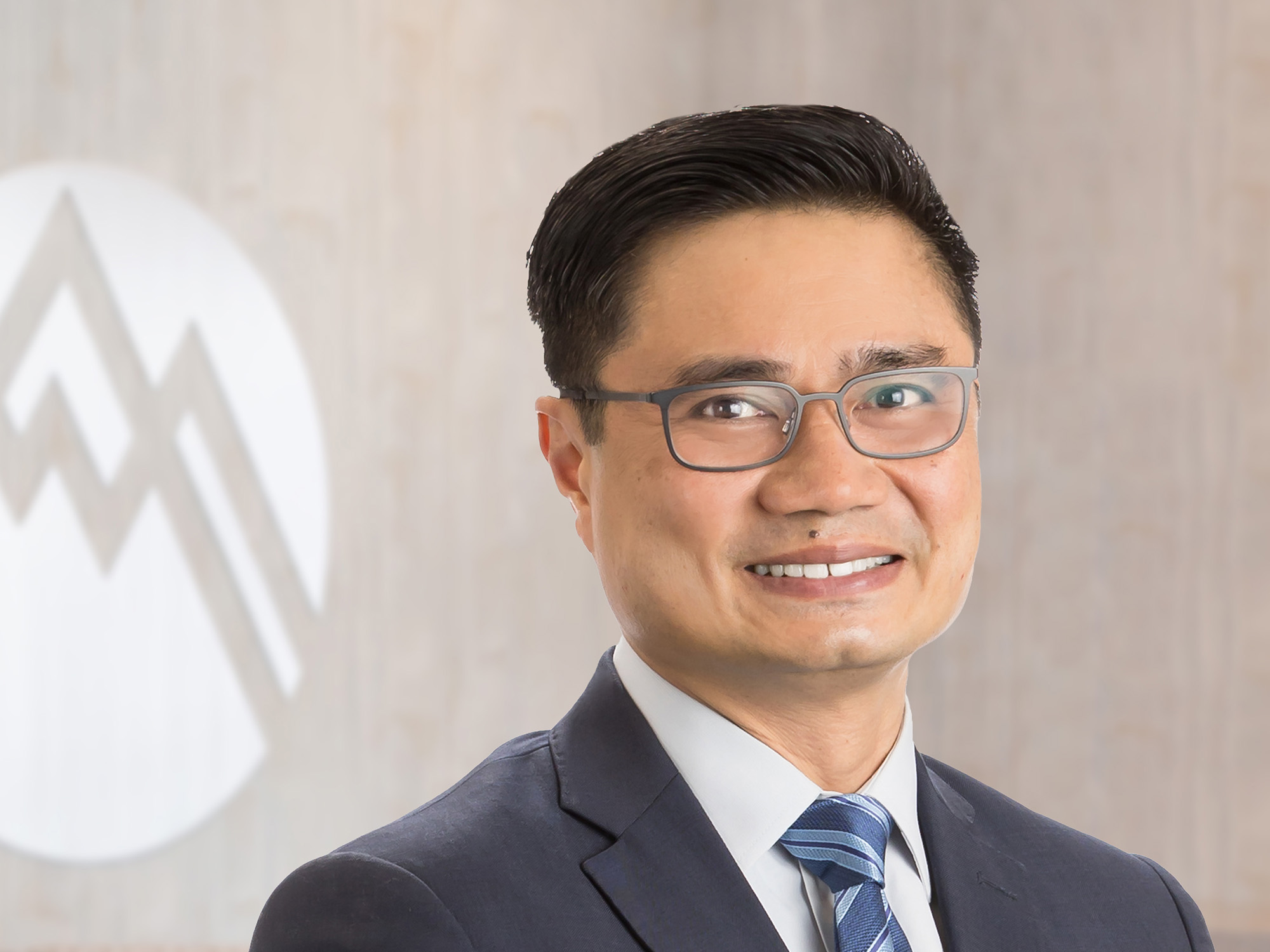Time is not kind to the discs in our spine. Fortunately, most of us do not experience pain as our discs become less flexible over the years. When disc degeneration is accompanied by painful symptoms, Dr. Santos walks us through the medical evaluation we can expect.
“Disc degeneration sounds alarming, but it is part of the aging process,” explains Summit spine surgeon Dr. Edward Santos. “The vertebrae in our spine are separated by discs to cushion the bones and provide flexibility in the spine. As we age, our discs dry out, becoming less flexible and less effective as shock absorbers. Because there is minimal blood supply to the discs, it is difficult for them to heal or repair themselves.” Even when disc degeneration does cause pain, most cases can be treated with conservative, nonsurgical therapies. Degenerative disc surgery is considered only when conservative treatment fails to provide relief from pain.
Degenerative disc surgery options
“Fusion and disc replacement surgeries are the most common options for pain caused by degenerative discs, but these surgeries are not interchangeable,” explains Dr. Santos. “To evaluate a patient’s degenerative disc surgery options, we must consider a number of factors, including the cause of the pain or pathology.
“An artificial disc replacement may be the best option if most of the pain is caused by the disc itself or by a disc herniation that is causing some form of impingement of the nerve or spinal cord. Disc replacement is most effective when the source of the pain is contained in the disc and the disc alone, and when the patient meets other qualifications, including a healthy weight, no prior major spine surgery, and no deformity in the spine.”
If the source of the pain lies outside of the disc itself, in the facet joints or ligaments, then the patient may not be an ideal candidate for a disc replacement procedure.
Considering age as a factor
“Age also plays a role in surgical decisions,” says Dr. Santos. “The older you get, the more likely it is that you’ll develop arthritis in portions of the spine—and patients with arthritis are less likely to be good candidates for a disc replacement procedure. I’ve certainly seen older patients who were appropriate candidates for a disc replacement, but when age is accompanied by painful arthritis of the facet joints or if there is significant deformity, it’s less likely that you’d be a candidate for a disc replacement procedure.
Everyone is unique
“Guidelines are important, but in the end, each back pain and neck pain patient is unique,” observes Dr. Santos. “A thorough examination and diagnosis by a spine specialist is the best way to evaluate appropriate treatment and select the surgery plan that will be best for you if surgery is necessary. At Summit, our spine team is committed to working with you to make sure you get the care you want and deserve.”
Summit Orthopedics offers comprehensive spine expertise
Our back specialists diagnose spine problems and design custom treatment plans built on a conservative, nonsurgical approach. Most patients find relief through treatments including guided injections, specialized physical therapy, biofeedback, exercise, activity modification, and medication. When conservative care does not relieve symptoms, our highly skilled surgeons offer proven, evidence-based surgical options. Together with you, we will determine the right course of action.
Start your journey to a healthy spine. Find your spine expert, request an appointment online, or call us at (651) 968–5201 to schedule a spine consultation.
Summit has convenient locations across the Minneapolis-St. Paul metro area, serving Minnesota and western Wisconsin. We have state-of-the-art centers for comprehensive orthopedic care in Eagan, MN, Plymouth, MN, Vadnais Heights, MN, and Woodbury, MN, as well as additional community clinics throughout the metro and southern Minnesota.
Spine related resources
- Check out additional information on Summit’s approach to spine care
- See Summit’s treatment options for neck, back, and spine care
More resources for you
- Read the article: Benefits Of Cervical Disc Replacement
- Understanding Degenerative Disc Disease

